
Enhancing Student Outcomes and Teacher Practice through Math Mastery: A Comprehensive Study Tour and Curriculum Framework Development.
As a primary school teacher with ten years of classroom experience, I’ve had the opportunity to teach across year levels from Prep to Year 3. Throughout my teaching journey, I’ve developed a strong passion for ensuring that every student feels a sense of success in the classroom and equally, that every teacher feels confident and equipped to deliver high-quality lessons. Over time, I’ve become increasingly interested in how we can bring greater consistency and clarity to the way we teach mathematics across the early years.
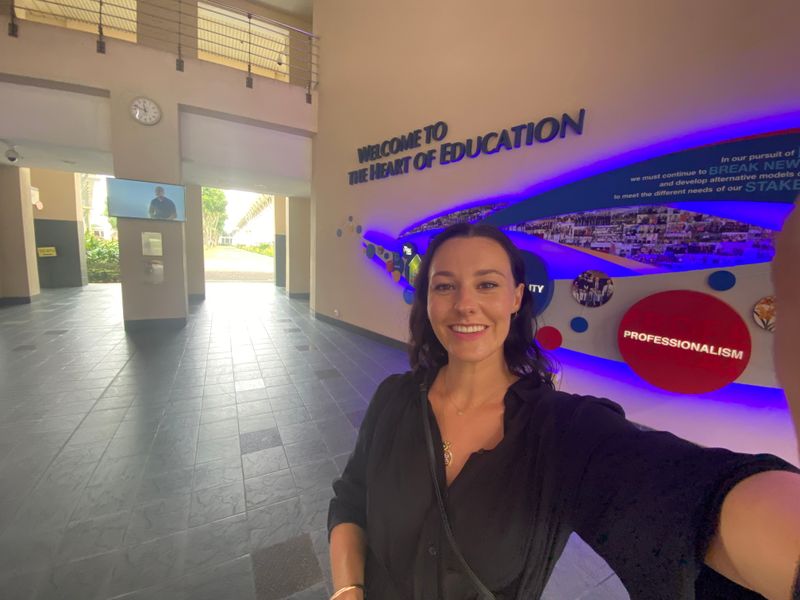
In 2024, I was fortunate to be awarded the inaugural Toowoomba Grammar School Teaching Fellowship to explore this interest more. My proposal, titled Enhancing Student Outcomes and Teacher Practice through Math Mastery: A Comprehensive Study Tour and Curriculum Framework Development, focused on investigating how the Math Mastery approach could strengthen both student understanding and teacher instruction in mathematics. This opportunity took me to Singapore to investigate the Math Mastery approach - an internationally recognised model of mathematics instruction that supports every student to achieve deep understanding through carefully sequenced, explicit teaching.
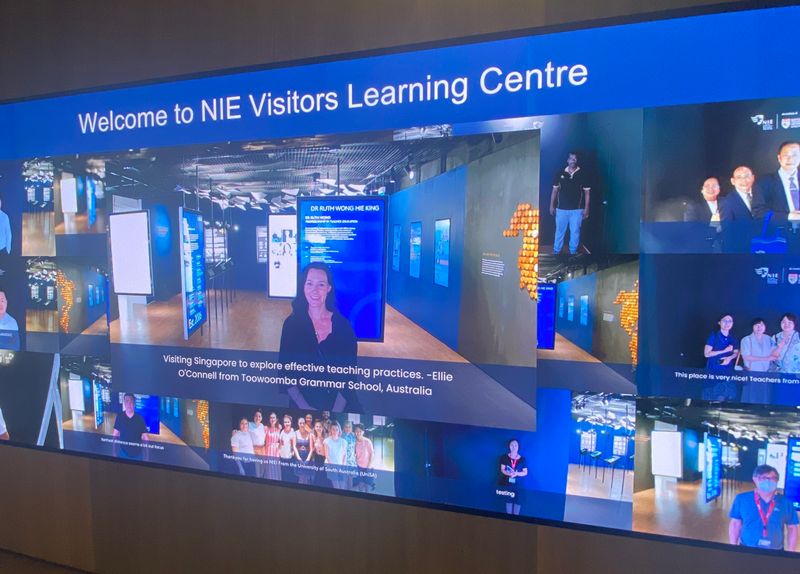
Why Mathematics? Why Now?
Across Australia, there is growing national concern about the long-term decline in mathematics achievement. Reports such as the Gonski Review (2018) highlight that many students are not mastering the basic skills needed for future learning, and that teachers need more explicit, structured tools to support all learners. In the early years of schooling—where concepts are first introduced, and mathematical mindsets are formed—it’s crucial that instruction is clear, consistent and effective. Gaps in understanding at this stage can have long-lasting effects on a child’s confidence and progress. The fellowship was an opportunity to examine international best practices and bring back evidence-informed strategies that could enhance both student outcomes and teacher practice in our own School.
Learning from Singapore: Schools and Insights
During my study tour in Singapore, I visited two leading international schools: Dulwich College and Invictus International School. Both schools use mastery-based approaches to mathematics, with structured, well-sequenced programs designed to develop deep conceptual understanding. At Dulwich College I observed math lessons from Years 1 to 5 that emphasised both mastery and practical application. The classrooms fostered a calm, focused learning environment in which teachers guided students through new concepts using clear, structured instruction, ensuring mastery through modelling, guided practice and checking for understanding before progressing. I also engaged in discussions with the school’s mathematics leadership team, who shared their planning processes and how they support teachers to differentiate within whole-class teaching.
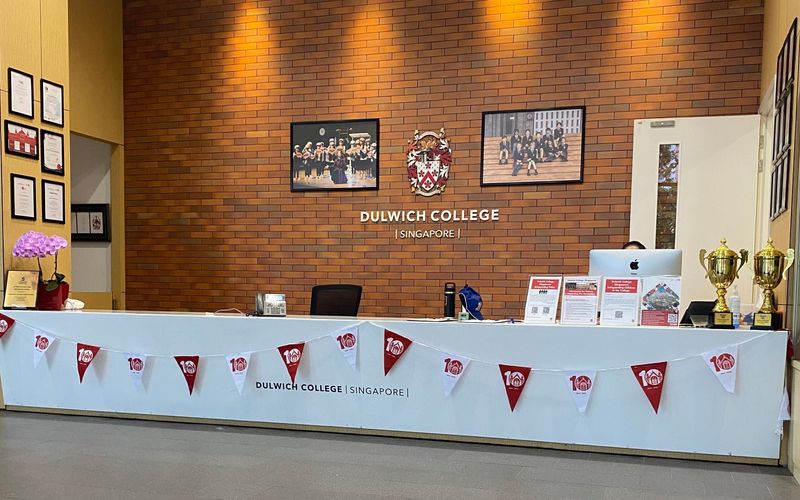
Invictus International School offered a contrasting yet equally valuable perspective. With a diverse cohort of learners and a flexible curriculum model, their team demonstrated how mastery principles can be embedded in a range of contexts. I also had the opportunity to meet with local educational consultants and curriculum developers, who offered insights into how Singapore’s national curriculum supports cumulative learning, daily review and concept mastery from the early years onwards.
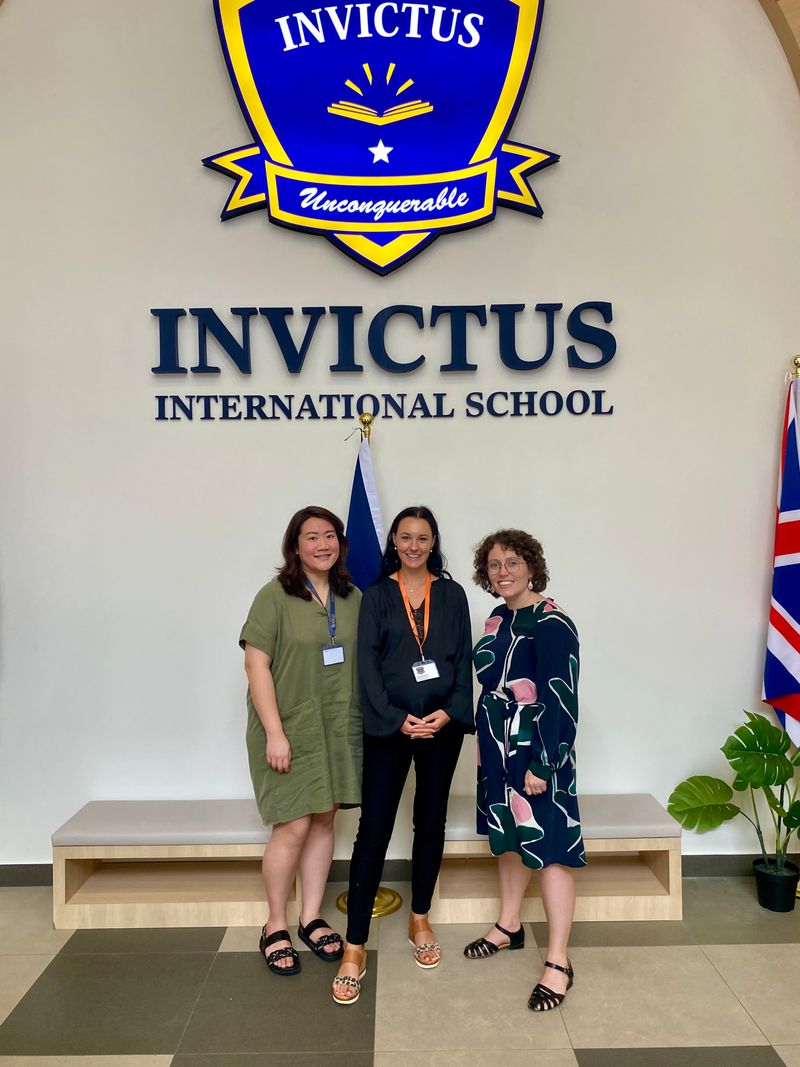
Key Findings: What Makes Mastery Work?
My observations confirmed the power of structured, explicit teaching in building strong foundations in mathematics. These were the key elements that stood out across all settings:
- Clear Learning Objectives
Teachers clearly define what students need to know and be able to do at the end of each unit or lesson.
- Whole-Class Instruction with Embedded Differentiation
Rather than streaming students by ability, mastery classrooms taught concepts to the whole class while using questioning, scaffolding and targeted support to meet individual needs.
- Corrective Instruction
Students who don't achieve mastery receive additional instruction or support to address knowledge gaps.
- Cumulative, Carefully Sequenced Learning
Each lesson built directly on the last, with time allocated for review and consolidation. This ensured that no student was left behind and that concepts were truly understood before new material was introduced.
- Mathematical Language and Reasoning
Teachers modelled precise vocabulary and encouraged students to explain their thinking. This supported deeper reasoning and helped students internalise core concepts.
- Learning Routines
Clear instructional routines and behaviours are established in every classroom, reinforcing expectations and supporting learning.
- Lesson Resources
Hands-on materials and visual examples are carefully chosen to help students connect with new concepts in ways that suit their learning needs.
- Fluency
Essential number facts are practised until automatic, helping students reduce cognitive load, enhancing students’ ability to focus on new and more complex ideas.
- Calm, Confident Learners
Most powerfully, students appeared confident, focused and proud of their mathematical thinking. The clear structure and shared learning journey contributed to a positive and inclusive classroom culture.

Global Perspective: Insights from Kinder World School
As a part of my research, I was able to engage in a conversation with Peter Baker, Principal Supervisor of 13 KinderWorld International Schools across Vietnam, I was able to dive deeper into how the Math Mastery approach works in large, diverse educational settings. These schools have adopted the Singapore Math model, a mastery-based framework built around explicit teaching and cumulative learning - many of the same principles I explored during my study tour.
Peter shared that their decision to adopt this approach was driven by a need for a consistent, evidence-based program that teachers could pick up quickly, deliver confidently and implement cost-effectively. “We started the explicit teaching model a couple of years back,” he explained. “We call it the KinderWorld Model. Retrieval practice to strengthen knowledge and problem-based application of learning is also included. I think it certainly makes a difference.”
What stood out to me in our discussion was just how closely their journey mirrors our own at TGS. We have already embedded strong practices in literacy through well-structured, whole-school programs that align with explicit teaching and the science of learning. However, mathematics remains an area where we see room for greater consistency and greater gains.
While our data confirms that we continue to perform above the state average in mathematics, recent NAPLAN results highlight a national decline in numeracy - a trend that we are aiming to avoid in our own School’s results. While we continue to do well, we have an opportunity and a responsibility to do even better for our boys. This is not just a local issue. In 2015, the Office of the Chief Scientist collaborated with ACARA to examine schools across Australia that had made significant improvements in numeracy over two years. Their report found that mastery-oriented environments were a consistent feature in high-performing schools (Smith et al., 2028).
When I asked Peter how the performance of his students compared to their peers in Australia, his response was compelling:
“We’ve had feedback from parents - many of whom are teachers - saying that when their children return to Australia, they are at least one to two years ahead in mathematics compared to their peers at home.”
This reinforces what global research has been saying for some time: structured, explicit, mastery-based teaching works. And more importantly, it works for all learners - not just the confident few.
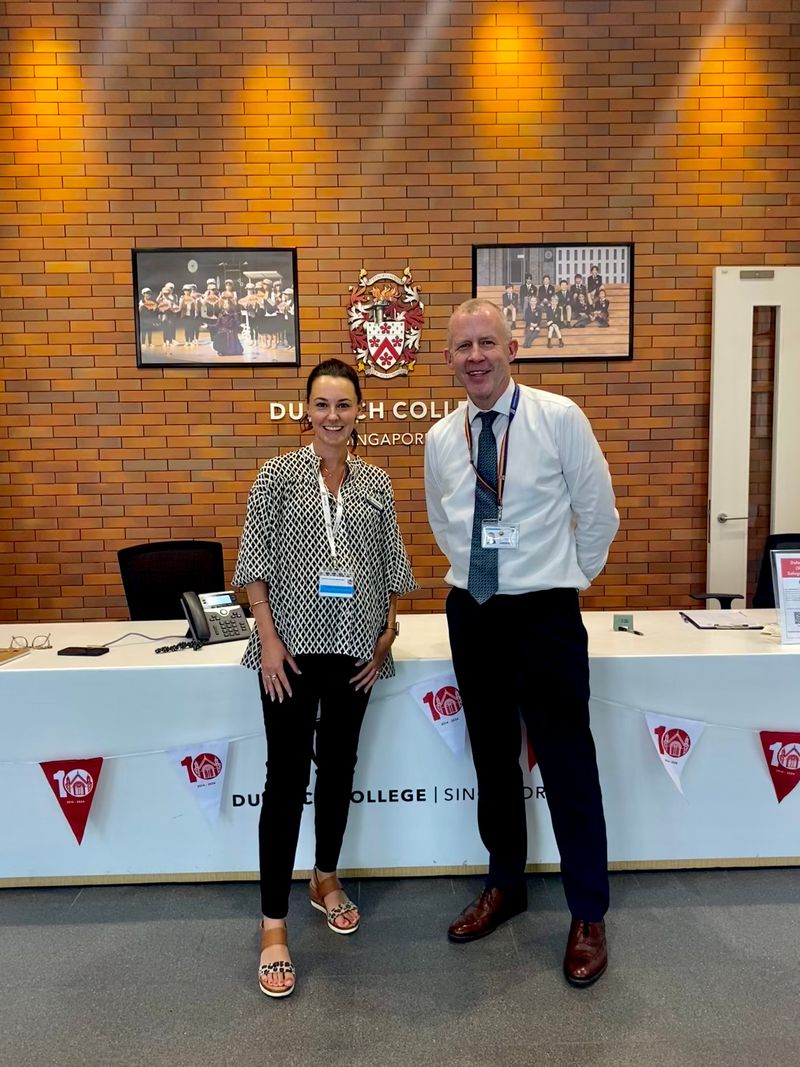
Bringing It Home: What’s Next for TGS?
I’m incredibly grateful for the opportunity this fellowship has provided - not only in shaping and deepening my own practice, but in contributing to a broader, shared vision for mathematics at TGS. This experience reinforced my belief that every student can succeed in mathematics when we give them the right tools, time and teaching. We are now laying the foundations for a clear and united approach to numeracy, one that will equip every boy with the confidence and skills to succeed - not just in the classroom, but throughout their schooling and beyond. And just as importantly, we’re building a community of confident teachers who are equipped to deliver lessons that are clear, consistent and deeply impactful.
I would like to sincerely thank Dr John Kinniburgh for granting me the opportunity to undertake this Fellowship. His support and encouragement throughout the process has been instrumental, and I am truly grateful for his guidance and mentorship. Dr Kinniburgh’s commitment to prioritising high-quality professional development for staff continues to shape a culture of growth and excellence in teaching and learning at TGS.
Latest Blog
TGS Success in GPS Sport
In 2023, Toowoomba Grammar School witnessed a remarkable resurgence in several of our sports programs, marking a year of triumph and growth. Although an elusive GPS premiership did not fall our way, a number of our 1st teams competed to the final whistle in Round 9 of their respective competitions, vying for their premierships. The achievements of our boys on the field and court were nothing short of exceptional, reflecting the commitment, dedication and character development that participation…
An Exceptional Learning Experience
As a member of the Junior School Leadership Team at Toowoomba Grammar School, my role involves ensuring that the Junior School’s Teaching and Learning programs are designed, implemented and managed effectively. This role is grounded in the vision, mission, and values of TGS and is crucial in supporting the Head of Junior School and the Director of Studies in providing an exceptional learning experience for our boys. At TGS Junior School, we prioritise the use of explicit teaching to ensure that…
An Inclusive Education
Toowoomba Grammar School is proud to introduce the newest addition to our education team, Amanda Gibson. Amanda commenced in Term 4, 2023 in the pivotal role of Head of Diverse Learners and will bring new direction and focus to the position in alignment with our commitment to inclusive education, aligning seamlessly with our Strategic Plan 2022-2026 and the Inclusive Education Policy. “I am very excited about developing this role,” said Amanda. “I have a passion for fostering environments where…
Get Involved in Everything
As Senior Prefect at Toowoomba Grammar School, I have had the opportunity to witness the benefits of being an all-rounder firsthand. With the various activities and programs the School offers, the ability to be involved in as many things as possible is not only enjoyable but brings about numerous benefits that extend far beyond the school years. Ranging from sports to drama and debating, participating in anything the School has to offer is an excellent way to make friends and build networks of…
The Importance of Knowledge
For as long as I can remember, I’ve always enjoyed traveling great distances. As a child growing up in rural New South Wales, this was inevitable. The region was speckled with towns, some more vibrant than others, and diverse landscapes where hillside ruins whispered tales of bygone eras. Over time, these landscapes and towns transformed into familiar scenes, with even minor changes in the community and environment growing more noticeable during each visit. Education parallels this journey, as…
Senior TGS Students' Advice for Starting Senior School
Starting at a new school can be a time of mixed feelings – very exciting, but also quite daunting and challenging. Here are some tips from some Year 7 Grammar boys who started Senior School in 2023. Get involved in different sports and activities Toowoomba Grammar School provides many sports and activities that any student can participate in. As a current Year 7 student, I highly recommend trying out as many different sports and activities as you can. Throughout my first year in high school, I…
Transition to Senior School at TGS
Starting at a new school can be a time of mixed feelings – very exciting, but also quite daunting and challenging. Irrespective of whether your son is joining us from the TGS Junior School, or if they are just starting at Toowoomba Grammar School, this is the start of a long and special journey. Your son will have a lot to digest with a new, possibly larger campus to navigate, different teachers and lessons, making new friends, where to go and what to do at morning tea and lunch. There can be a…
The Transition to Year 7 - from a Parent and Staff Member's Perspective
Regardless of your history with the school, you are all equally welcome here and should feel comfortable in knowing that we value every family and their son’s contribution to our School. Toowoomba Grammar School was built by the community, for the community and it is a School that I am immensely proud of. In 2025 we will celebrate our sesquicentenary or Grammar 150 and your sons will play a vital role in those celebrations. Our pedagogy is modelled on explicit instruction which has its roots in…
Boarding Families - Surviving Homesickness
Homesickness can be brutal for both the child and their parents. As a parent it can feel like your heart is being ripped out in some cases daily. It is extremely hard hearing how sad your boy may sound on the phone, and then you are left reeling for 24hrs until the next call, you are often left worried that they are feeling like this ALL DAY. Rest assured only vary rare cases are that bad, they usually improve as they settle in, and it is temporary. The reality is that most boys tend to save…